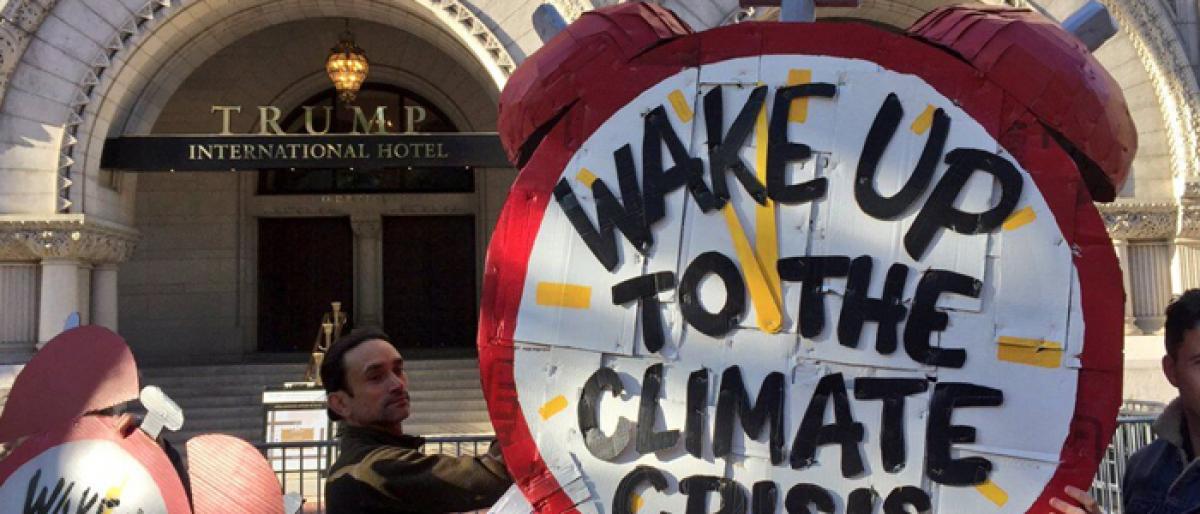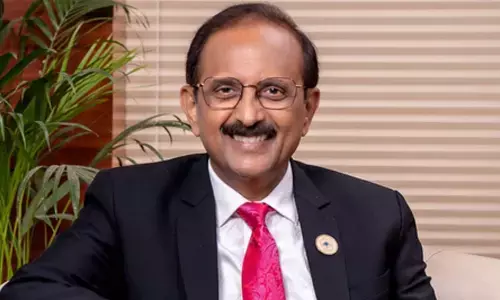Can Paris Climate Pact be saved from doom?

Two months ago, all 12 boys and the coach of a Thai football team were rescued after being trapped in a cave in northern Thailand for 18 days Many termed their rescue against heavy odds a miracle Sadly, the sixday United Nations Special Climate Conference that concluded on September 9 was not able to rescue the trapped Paris Climate Agreement in the welllit conference centre in southern Thaila
Two months ago, all 12 boys and the coach of a Thai football team were rescued after being trapped in a cave in northern Thailand for 18 days. Many termed their rescue against heavy odds a miracle. Sadly, the six-day United Nations Special Climate Conference that concluded on September 9 was not able to rescue the trapped Paris Climate Agreement in the well-lit conference centre in southern Thailand. Many of the delegates wondered if it was about pronouncing the promises only to dodge them.
The Paris Climate Agreement has been hanging from a cliff right from the day US President Donald Trump, a year back, announced his official plan to withdraw from it. Though hundreds of American mayors and thousands of businesses – and even its allies like France – have been seeking to defy the consequences of Trump's withdrawal, the agreement is getting dangerously close to its fatal consequence.
The good news is that the Paris Agreement has entered into force on November 4, 2016, in less than a year from its consensus adoption on December 12, 2015, in Paris. However, it is yet to be operationalised because its modalities, procedures and guidelines are yet to be agreed upon by its 180 Parties (countries that ratified the Paris Agreement). Indeed, the Paris Agreement in its present form is just an agreement of intent.
These "rules," as per the time-table agreed in Paris, have to be ready no later than 2018. Formulating the rules on the cyclic and iterative nature by enhancing the nationally determined contributions (NDCs), earlier considered an innovation in international agreements, is now proving to be formidable.
It all boils down to the fact that world is now setting the new norms of not keeping the promises made on global cooperation. Not walking the talk and smartly gyrating the agreed goals is now the global attire of the diplomacy. And each of these new patterns are being justified, sometimes diplomatically and, many times with international arrogance.
Take, for example, financing for mitigation and adaptation for the developing countries. The "polluter to pay" norm has been the anchor in the multilateral environment agreements right from the 1992 Rio Agreement, but is now being openly flouted. The promise of providing "additional" finance through the Green Climate Fund (GCF), which was first proposed by then Secretary of State Hillary Clinton and then President Barack Obama in Copenhagen in 2009, is supposed to become fully operational in 2020, i.e. developed countries would provide – starting with $10 billion per year in 2012 to reach $100 billion per year from 2020 onwards –to help developing countries pay for climate adaptation and mitigation.
What has happened to that promise? As of today, GCF has pledges of $10.4 billion whereas the actually committed is only $3.5 billion. The GCF as institution itself is in chaotic state. "GCF is melting down faster than Antarctica," one of the delegates in Bangkok said. Not walking the full talk by the star performers on climate change has also resulted in the angry reaction from civil society, and supported by countries, on such climate-hypocrisy.
An example is the Global Climate Action Summit convened from September 12 to 14, 2018, in San Francisco, under the leadership of California Governor Jerry Brown. The summit's theme is "Take Ambition to the Next Level". It will be a star-studded international event to showcase climate action at all levels and to inspire enhanced commitments and god-speed action from countries to realise the goals of the Paris Agreement. Indeed, California, the richest US state, has done more in policy setting and its implementation in the field of renewable energy and energy efficiency than any other country in the world. Its firebrand governor can be termed as climate's game-changer.
In Bangkok, Brown was booed by civil society representatives for his soft approach towards oil producers in California by allowing them to drill for oil. "How can we expect a leader to take climate ambitions to the next level when he himself, from the back-door, takes it to a lower level," queried one demonstrator in Bangkok.
When state leaders arrive in Poland in December, they would have to muddle through the mess of the draft "rule book" mired in diminishing trust. By that time, the GHGs concentration, already higher by 42 per cent as compared to 1992 levels, would have risen to the "next level."
(Rajendra Shende - The author is Chairman TERRE Policy Centre, Pune and former Director UNEP)














